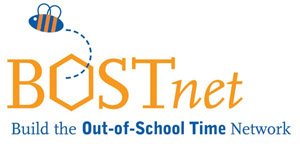BOSTnet recently convened two focus groups of both established and emerging "leaders" in youth-serving organizations in Boston. The groups were small and provided an opportunity to engage in open dialogue around leadership challenges and leadership development. The two groups were very different in their level of experience, but both groups struggled when we engaged in an exercise to define leadership.
Perhaps not surprisingly, discussions of leadership often breakdown into 1.) discussions of management skills needed to be an effective leader, and 2.) the more intangible personality characteristics seen in strong leaders. The first group includes skills such as: organizational development, strategic planning, fiscal management, board management, communication, fundraising, etc. The second group of characteristics included: reflection, engagement, values, vision, integrity, humility, trust, balance, and ego.
With a bifurcated list of defining elements on the board, the discussion shifted to the challenges these leaders face everyday in trying to build their skills as effective leader. Common challenges include: time, resources, people, trust, fear, power & influence, inflexibility, tradition vs. innovation, burn out, generational gap (lack of succession planning), diversity, compensation. I also must add one of my personal favorites of the day--an overall belief in some leaders that "I am the only one who can...."
Lacking in the discussion was a broader emphasis on leadership in the field. For most participants, leadership was a personal journey that seemed to be confined to their own relationships, their own development and the vitality of their organizations. In an age of limited resources this makes a lot of sense. Self preservation often wins the day. However, there is clearly a need for broader and more forceful leadership around issues affecting the entire OST field. This got me thinking that perhaps what is needed is not more training programs to address the skills needed by leaders to be effective managers, but more opportunities for people to be leaders. And by that, I mean more opportunities to create change. Because, ultimately, a leader must be someone who is an agent for change rather than a manager who can read a financial statement.
Gov. Patrick Establishes Six Readiness Centers
16 years ago
